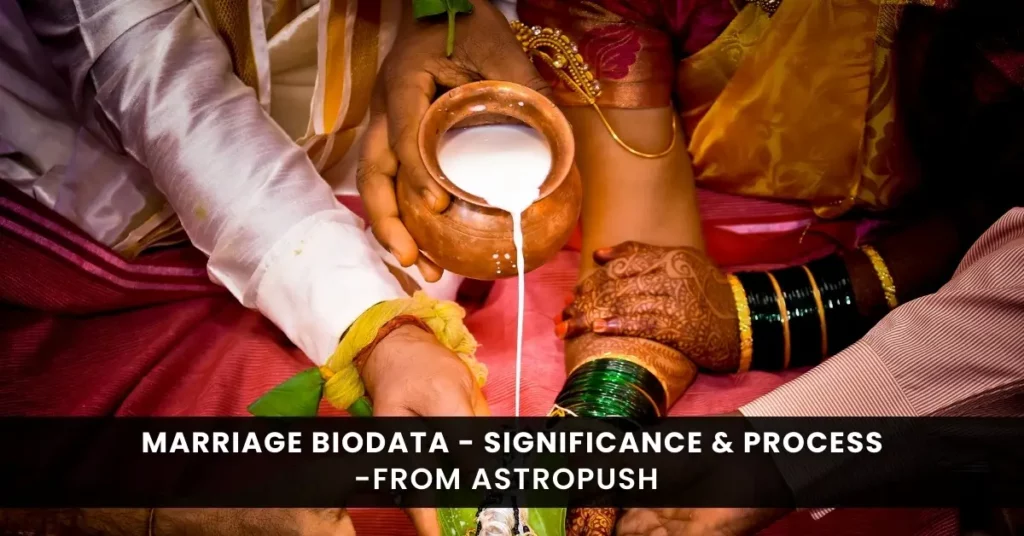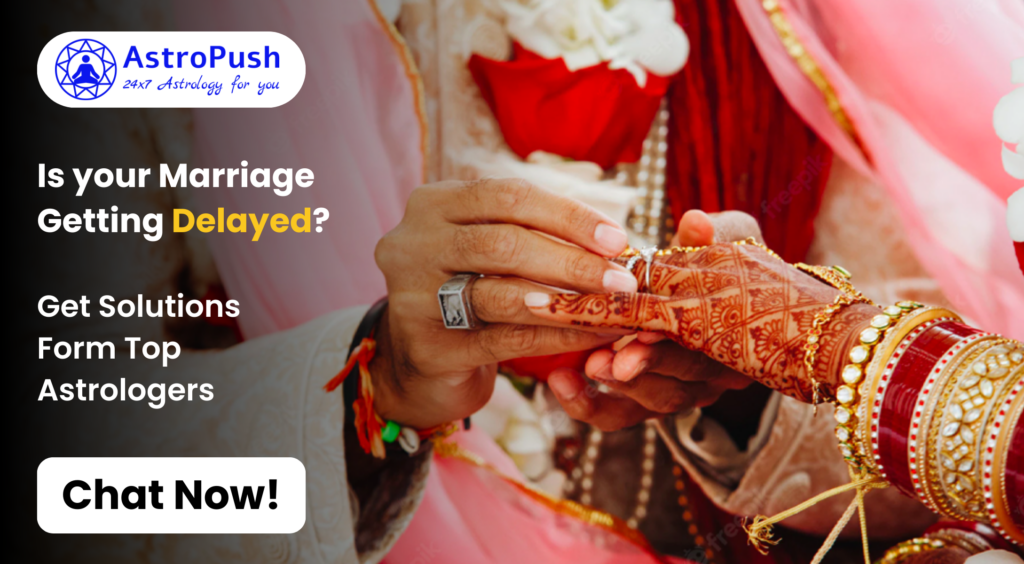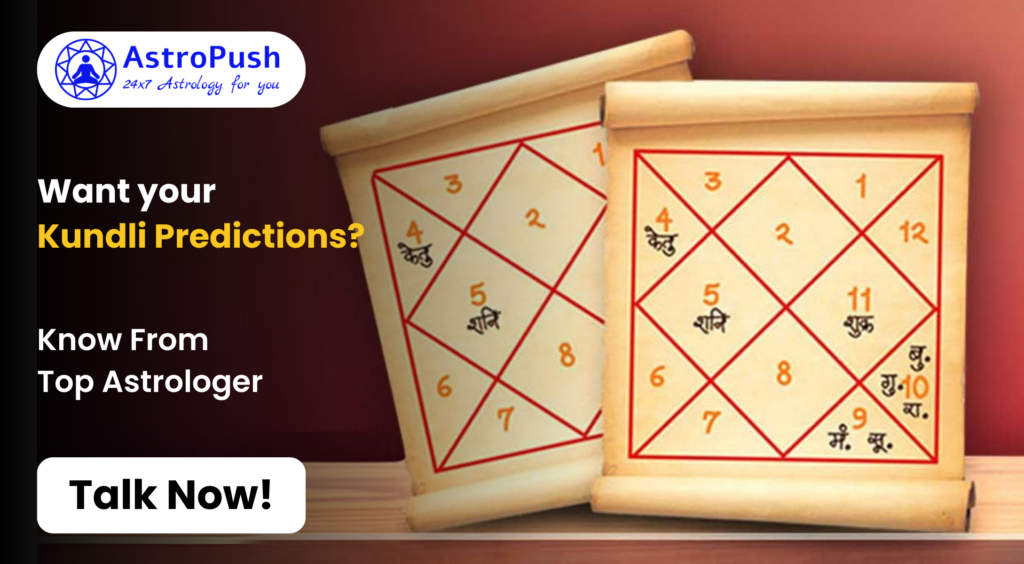A marriage biodata is like a detailed document that contains important information about a person who wants to get married. People use this document, especially in India for arranged marriages, to introduce themselves formally and briefly, to the people they might marry and their families. It’s like a way of saying, “This is who I am, and this is what I’m looking for in a partner.”
In this document, you can find a lot of details about the person. It tells you their full name, how old they are, when they were born, what religion they follow, and where their family comes from. People often include detailed information about their parents too, like their parents’ names and jobs because this can be important in many cultures.
Additionally, the biodata talks about their education, like where they went to school and what degrees they have. It also says what job they do and where they work. Some people even mention how much money they make (income status) because money/income is an important aspect for many families when they’re looking for a match.
Lastly, the biodata often has a section where the person can say what they want in a partner. In this regard, individuals often contemplate not only the qualities they are seeking but also the values that hold significance to them, and the interests they desire in a prospective spouse. Consequently, these specific details play a crucial role in aiding families and individuals alike in determining compatibility for matrimonial purposes.
Significance of Marriage Biodata
Why do we make biodatas for marriages?
Imagine you want to get married, but you don’t know the person you might marry very well. That’s where a marriage biodata comes in. Biodatas are like a quick way to share information in today’s digital world, and they make sure you and your future partner are compatible.
Making a marriage biodata is like making a friendly introduction card. It helps in arranged marriages where families are involved, especially when physical meetings aren’t possible right away. In our fast-paced digital world, biodatas save time and help ensure that you and your potential partner are a good match for a happy life together.
Let’s explore why biodatas matter so much in the world of Indian arranged marriages:
1. Easy Introduction:
Think of a biodata as a short and clear way to introduce yourself if you are looking for a life parner. When you’re looking for a better half, you want to make sure the other person knows important things about you. A biodata helps you do that.
2. Arranged Marriages:
In India, many marriages are arranged by families. That means your parents or other family members help you find a partner. Before you actually meet the person you might marry, your families want to figure out if you both are a good match. Sometimes, meeting in person isn’t possible right away. Additionally, this is where the biodata comes in handy. It’s like a sneak peek that helps families decide if you might be a good fit.
3. Digital Convenience:
Nowadays, everything happens online and really quickly. Additionally, biodatas are like the fastest way to share information about yourself and what you want in a partner with people all around the world. Moreover, you can send your biodata through email or messages in just a few seconds. This is super helpful when families are looking at potential matches who live far away.
4. Time-Saver:
In the world of arranged marriages, you might have to consider several possible and suitable matches before making a decision. Going through all the details about each person can take a lot of time. Biodatas help you speed up this process. They present all the essential information briefly, so families can quickly see if a match fits their expectations.
5. Ensuring Compatibility:
Firstly, marriage is a lifelong commitment, and it’s super important that you and your partner get along well. Additionally, by sharing your biodata, you’re making sure that the person you might marry shares your values, interests, and goals. Consequently, this can lead to a happier and more successful marriage.
Personality Compatibility in Lifelong Partnerships
As individuals embark on the journey of finding a suitable life partner, their primary aim is to gain a profound understanding of each other’s personalities. Consequently, this understanding serves several crucial purposes, including fostering mutual respect and empathy, establishing a strong foundation for communication, and laying the groundwork for a lasting and fulfilling relationship. This understanding serves several important purposes:
1. Emotional Compatibility:
When people aim to understand each other’s personalities, they want to see if their emotions match. This means they want to make sure they can connect and understand each other’s feelings. It’s like checking if they speak the same emotional language.
2. Mutual Harmony:
Understanding each other’s personalities also helps in creating a peaceful and happy environment together. It’s like making sure they can live together without too much conflict or disagreement.
3. Consent and Good Communication:
Learning about each other’s personalities makes it easier to talk openly and honestly. This ensures that both people agree on things and can communicate well. It’s like making sure they are both on the same page and comfortable with the relationship.
4. Ideals of Life and Related Matters:
Similarly, they want to know if their life goals, values, and beliefs are similar. Consequently, this is really important for a successful partnership. In other words, it’s like checking if they are heading in the same direction in life.
5. Bonding and Commitments:
Furthermore, understanding each other’s personalities helps in building a strong connection and making promises to support each other, no matter what challenges come their way. In essence, it’s like creating a strong foundation for their relationship.
6. Purpose of Leading Life Together:
Additionally, they can talk about why they want to be together and what they want to achieve as a couple. Ultimately, this makes sure they are both on the same path in life.
7. Insight into Each Other’s Lives:
Moreover, learning about each other’s past experiences helps in understanding where they come from and what they’ve been through. In essence, it’s like getting to know their life stories.
8. Mutual Decision of Getting Married:
Therefore, they use this understanding to decide if they want to get married or not. Essentially, it’s like making an informed choice together.
9. Appropriate Personalities and Mutual Traits:
First of all, they can figure out if their personalities and qualities are a good fit for each other. Additionally, it’s like making sure they complement each other and can grow together.
Differences between a Resume, CV, and Biodata
When it comes to sharing information about oneself, especially for important life events like job applications or marriage proposals, we use different types of documents to briefly mention about ourselves. These documents, such as a Resume, CV, and Biodata, are like special profiles that tell others about who we are and what we’ve done. But they’re not all the same; they have unique purposes and lengths.
Let’s explore the differences between these documents to understand when and how they are used:
BIODATA:
- What is it? Biodata is like a personal profile. It’s an old-fashioned term for a resume or CV.
- What’s in it? Biodata mainly focuses on personal details like your birthdate, gender, religion, nationality, where you live, and whether you’re married or not. It also lists your education and work history but doesn’t emphasize your skills.
- How long is it? It can be from 1 to 3 pages, depending on how much info is needed.
- When is it used? Biodata is commonly used in the Indian subcontinent, especially for marriage proposals. It provides a lot of personal information.
CV – CURRICULUM VITAE:
- What is it? CV stands for Curriculum Vitae, which means “the course of your life” in Latin. It’s like a detailed life story in document form.
- What’s in it? A CV is very detailed, covering your entire life’s journey, including personal info, education, all your skills, hobbies, and more. It’s like a biography.
- How long is it? CVs are usually 2 to 3 pages long, or even longer if needed.
- When is it used? CVs are often used when you want to describe your life’s activities in great detail, especially in fields like academia or research, and are vastly different from Marriage Biodata.
RESUME:
- What is it? Resume comes from the French word for “summary.” It’s a brief document that summarizes your education, skills, and work experience.
- What’s in it? A resume is short and sweet, highlighting specific skills and experiences that match the job you’re applying for. It doesn’t include everything but focuses on what’s important for the job.
- How long is it? Resumes are usually 1 or 2 pages long, keeping it concise.
- When is it used? Resumes are commonly used when you’re applying for a job. They showcase your most relevant skills and experiences for that specific position.
What to Include in a Marriage Biodata?
A marriage biodata is not a legal document, so people create it based on what they think is important. Its purpose is to give potential matches enough information to decide if they are interested in connecting.
Most people look for specific details like:
Basic Information:
- Photograph: A picture helps others put a face to the profile.
- Name: Your full name is usually the first thing people want to know.
- Age: How old you are matters to potential partners.
- Date of Birth: This tells them your birthdate.
- Height: Your height is often a preference for many.
Family Background:
- Religion: Mention your religion.
- Caste / Sub-Caste: This is especially important in certain cultures.
- Food Habit: Specify if you are vegetarian or non-vegetarian.
Education and Profession:
- Education: Share your educational qualifications.
- Profession: Tell them what you do for a living.
- Income: How much you earn can be important to some people.
- Current Location: Where you currently live is essential information that has to be included in the Marriage Biodata.
Family Details:
- Parents’ Names and Professions: Include your parents’ names and what they do for a living.
- Siblings: Mention how many siblings you have and what they are currently doing.
- Family Type and Status: Describe your family’s background and current situation.
Lifestyle and Personality:
- Lifestyle: Share details about your lifestyle and daily routine.
- Hobbies: Mention your interests and hobbies.
Religious and Cultural Details:
- Horoscope Details (For Hindus): If you’re Hindu, provide information about your horoscope.
- Religious Practices (For Muslims): If you’re Muslim, share details about practices like Haj, Namaz, and dress code.
- Church Name (For Christians): If you’re Christian, mention your church’s name.
Partner Expectations:
- Describe what you’re looking for in a partner, including age group, minimum height, caste preferences, education, profession, and habits.
In summary, a marriage biodata includes various details about you, your family, your lifestyle, and your expectations from a potential partner. It’s a way for both you and prospective matches to get a clear picture of compatibility and decide if you want to take things further.
Creating an Honest Matrimonial Profile / Marriage Biodata: Dos and Don’ts
Dos:
- Be Honest: Always be truthful when describing yourself on a matrimonial site. Provide detailed and accurate information.
- Stay Calm: Write about yourself with a calm and composed mind. Take time to identify your achievements, talents, goals, and interests. Be confident in who you are.
- Include Key Details: Mention information like your Education, Income, Family, Religion, Caste, community, location, and partner preferences. Answer these honestly and without manipulation.
- Show Your Personality: Describe your likes, dislikes, hobbies, and interests, and add some humorous points about yourself.
- Share Feedback: Include how your friends describe you and how you behave professionally at work and with your family.
- Elaborate: Provide more details about yourself, your priorities, and your expectations from your life partner. Express your extroverted or introverted nature.
Don’ts:
- Avoid Exaggeration: Steer clear of excessive praise or criticism. It’s best not to go on and on about how much you love or dislike someone or something.
- Stay Accurate: Avoid writing incorrect information or contradictions, as they can create a negative impression.
- Be Genuine: Don’t show off your wealth or status, and avoid trying to appear overly smart. Be genuine and polite.
- Keep it Concise: Try to keep your matrimonial description within 350 words. Long paragraphs can be boring and may not create a positive impression.
- Check for Errors: Watch out for spelling and grammar mistakes. Write in a language you are comfortable with, and consider using online tools for help with corrections.
These guidelines should help you present yourself effectively on matrimonial sites while staying true to who you are, while in the case of Marriage Biodata.
AstroPush- Online Astrology Made Easy
AstroPush offers an online service that analyzes your Kundli chart based on Vedic astrology. Additionally, this belief says that your Kundli chart tells the story of your life, like a roadmap. Furthermore, our online astrologers use this chart to discover your strengths, weaknesses, personality, and preferences. Consequently, this information can help you make better decisions and find success in life in the cases of Marriage Biodata.
Furthermore, our online astrology approach is all about staying positive and being prepared for life’s challenges. You can use our platform to make informed choices about things like education, career, money, and marriage. Additionally, we even offer a free online Hindi Kundli report that checks for any issues and suggests solutions to overcome them. Moreover, we also look at how the planets’ movements can affect your future.
Additionally, if you’re curious about the unique planetary alignments in your life, you can obtain your customized online Kundli from AstroPush. Consequently, it’s an invaluable tool that can provide you with insights and guidance, allowing you to confidently navigate life’s journey through online astrology.
In conclusion, creating a marriage biodata is an important step in the matrimonial process, providing essential information about oneself to potential partners and their families. It serves as a snapshot of one’s background, values, and aspirations, helping to facilitate the matchmaking process. At AstroPush, we understand the significance of finding the right partner and offer a variety of services to support your journey. Whether you’re seeking guidance on creating a marriage biodata, having a chat with astrologers, free Kundli and horoscopes, Kundli matching, numerology, panchang, and more, our platform is here to assist you. Feel free to reach out to us anytime through our website or chat platform to explore the resources and guidance available to you in your quest for a fulfilling marriage.



